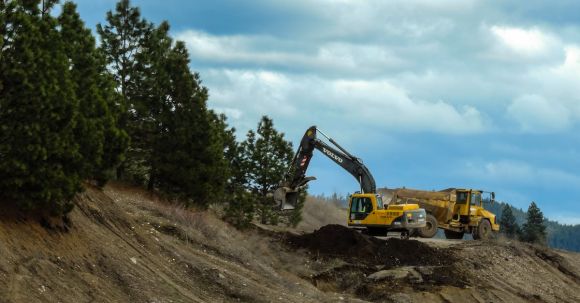For many construction companies, the choice of the right excavator for any given project is a critical decision. An excavator can be used for a variety of tasks, from digging trenches and foundations to demolishing buildings and structures. It is therefore essential to choose the correct excavator for the job, in order to ensure maximum efficiency and productivity. In this article, we will look at the different types of excavators available, and provide an in-depth analysis of their respective advantages and disadvantages.
Types of Excavators
There are three main types of excavators; wheeled, tracked, and compact. Each type has its own unique features and benefits, as well as drawbacks.
Wheeled Excavators
Wheeled excavators are the most common type of excavator, and are typically used for general purpose excavating jobs. They are easy to maneuver and can travel at a relatively fast speed, making them ideal for jobs such as trenching, digging, and grading. However, they are not suitable for use in muddy or wet conditions, as the wheels will easily become stuck. Additionally, the large size of wheeled excavators makes them unsuitable for use in confined spaces.
Tracked Excavators
Tracked excavators are larger than wheeled excavators, and are typically used for heavy-duty excavating jobs. They are more powerful and can handle more substantial loads than wheeled excavators, making them ideal for jobs such as demolition and land-clearing. However, they are not suitable for use in tight spaces, and have poor maneuverability, making them a less than optimal choice for jobs such as trenching and grading.
Compact Excavators
Compact excavators are the smallest type of excavator, and are typically used for light-duty excavating jobs. They are easy to maneuver and can fit into tight spaces, making them ideal for jobs such as trenching and grading. However, they are not suitable for use in larger excavating jobs, as they lack the power and capacity of larger excavators.
Factors to Consider When Choosing an Excavator
When choosing an excavator for a particular project, there are several factors to consider. These include the size of the job, the terrain, the power requirements, and the budget.
Size of the Job
The size of the job is one of the most important factors to consider when choosing an excavator. If the job is large, then a larger, more powerful excavator, such as a tracked or wheeled excavator, is often the best choice. However, if the job is small, then a compact excavator may be the better option.
Terrain
The terrain of the job site is another important factor to consider when choosing an excavator. Tracked excavators are best suited for rough terrain, while wheeled excavators can handle most types of terrain. Compact excavators are ideal for tight spaces and areas with limited access.
Power Requirements
The power requirements of the job should also be taken into consideration when choosing an excavator. Tracked excavators are the most powerful type of excavator, and are therefore often the best choice for jobs that require a high level of power. Wheeled excavators are a good choice for general purpose excavating jobs, while compact excavators are best suited for light-duty jobs.
Budget
Finally, the budget is a key factor to consider when choosing an excavator. Wheeled and compact excavators tend to be the most affordable options, while tracked excavators are usually more expensive. It is important to consider the cost of the excavator and any additional accessories that may be required for the job.
Conclusion
Choosing the right excavator for any given project is an important decision. Different types of excavators have their own unique advantages and disadvantages, and it is essential to consider the size of the job, the terrain, the power requirements, and the budget when selecting the most appropriate excavator for the job. By taking all of these factors into account, it is possible to make an informed decision and select the most suitable excavator for the project.


![Crane - Gray Concrete Building Interior ]](https://power-at-work.com/wp-content/uploads/2023/09/key-innovations-redefining-the-functionality-of-cranes-150x150.jpg)



